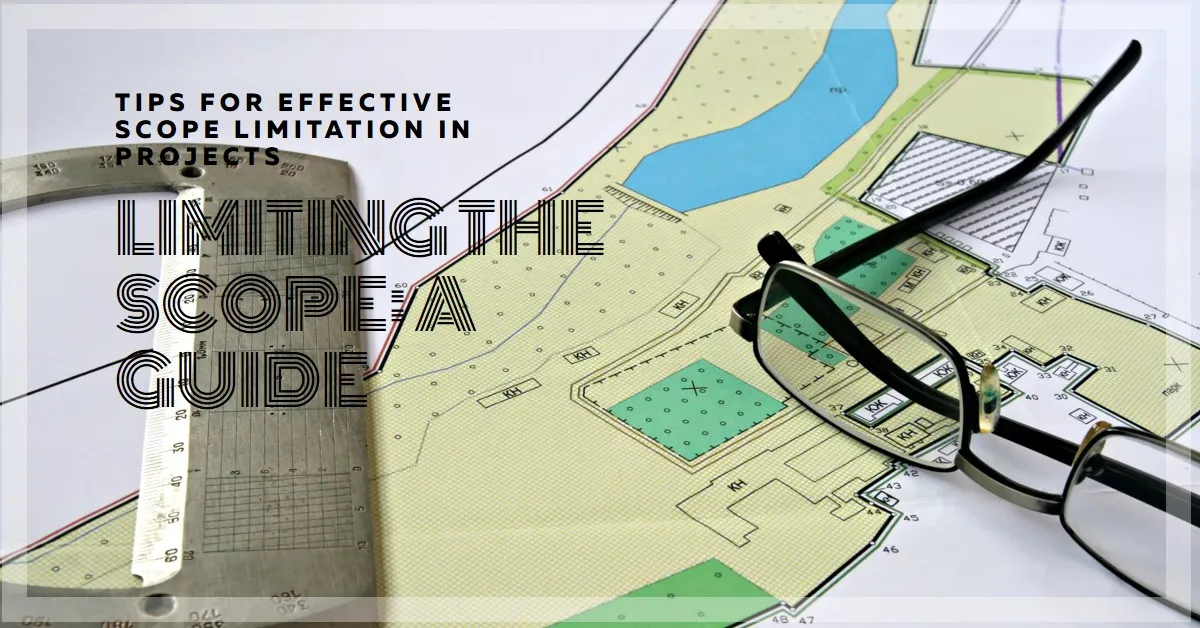In financial auditing, small errors can ripple through reports. Recent guidance highlights challenges even expert auditors face. Scope limitation arises when auditors can’t fully verify assets, often due to late entry. This issue impacts report reliability and underscores the need for adaptability. As businesses change, audits grow more complex, demanding clear communication and thorough documentation.
Key Takeaways
- The latest guidance highlights the challenges auditors face with scope limitation and its rippling effects.
- Auditors must judiciously issue a ‘Qualified opinion’ to signal such limitations—which often extends to reporting on consecutive years.
- Thorough explanations in audit reports are crucial to delineate the specific reasons behind qualifications.
- While key audit matters must be disclosed, the integrity of going concern conclusions need not waver if unrelated to the qualification.
- When scope limitations arise, other information presented by the entity should be assessed for consequential impacts.
What Exactly is a Scope Limitation?
A scope limitation stops an auditor from fully examining a company’s financial statements. This can be due to not having enough evidence or being unable to run certain tests. Reasons include management restrictions or things like natural disasters. This limits how much assurance an auditor can give about the financial info being reliable.
Understanding the Definition of Scope Limitation
Scope limitation challenges auditors in the financial world. It restricts access to crucial data. Auditors face incomplete records. This hampers thorough financial information verification.
Scope limitation arises from:
- Management actions
- Unforeseen events (e.g., disasters)
These limitations affect financial statement reliability. Recent guidelines stress this impact. The August 2021 update emphasizes clear explanation of qualified opinions.
Key points:
- Scope limitations are common in auditing
- They prevent comprehensive financial checks
- Guidelines require transparent reporting
International Standards on Auditing (UK) 705 mandates:
- Special ‘key audit matters’ section in reports
- Applies even with qualified opinions
- Requires assessment of Companies Act 2006 relevance
Auditors must:
- Evaluate limitation effects on other financial data
- Communicate implications clearly
- Maintain stakeholder confidence
Scope Limitation in the Context of Financial Reporting and Auditing
Scope limitations affect auditors’ work. They hinder detailed audits and clear opinions. Auditors must report these limitations. This maintains financial statement integrity.
Types of Scope Limitations and Their Causes
Two main types exist:
- Management-induced limitations
- Event-driven limitations
Causes include:
- Missing documents
- Management restrictions
- Natural disasters
- Unexpected events
The Impact on Auditor’s Reports and Opinions
Scope limitations significantly alter Auditor’s Reports. Effects depend on limitation severity:
- Changed opinion
- Disclaimer of opinion
Auditors must:
- Evaluate limitation extent
- Determine appropriate conclusion
- Communicate impact to users
Addressing Scope Limitation Concerns
Auditors should:
- Clearly communicate limitations
- Seek alternative audit methods
- Engage management to reduce restrictions
Guidance for handling scope limitations:
| Guidance Type | Description | Relevance |
|---|---|---|
| Staff Audit Practice Alerts | Alerts No. 3, 5, 7, 9, 11, 15 | Internal control, evidence collection, risk assessment, fraud risk |
| Internal Control Over Financial Reporting | Prevent misstatements | Material weakness evaluation |
| Risk Assessment | Identify material misstatement risks | Direct audit focus |
| Fraud Risk Management | Evaluate fraud-prone area controls | Transaction integrity, estimate scrutiny |
Since November 15, 2007, stricter requirements address scope limitations. Prompt, effective handling is crucial.
Auditors must:
- Identify requirement changes
- Assess impact on audit
- Adapt procedures accordingly
- Maintain substantive and analytical procedures balance
Transparent communication enhances stakeholder understanding of financial statement reliability.
The Effects of Scope Limitation on Project Management
Project success hinges on scope alignment. Detailed scope outlines define activities, resources, timelines, and deliverables. Scope limitations impact project outcomes.
Consequences of Poorly Defined or Uncontrolled Scope
Scope creep causes:
- Budget overruns
- Quality degradation
- Project delays
Legal issues may affect scope, requiring swift action. Poor scope management leads to:
- Resource misallocation
- Stakeholder dissatisfaction
- Project failure
Strategies for Effective Scope Definition and Management
- Identify requirement changes:
- Assess impact on project
- Seek stakeholder approval
- Implement changes promptly:
- Update project documents
- Communicate to team members
- Risk assessment:
- Identify potential scope issues
- Develop mitigation strategies
- Set clear scope limits:
- Define project boundaries
- Establish change control processes
- Improve resource allocation:
- Align tasks with project goals
- Optimize team utilization
- Enhance clarity:
- Create detailed scope statements
- Use visual tools (e.g., Gantt charts, WBS)
- Maintain compliance:
- Address legal requirements
- Ensure regulatory adherence
- Regular scope reviews:
- Conduct periodic assessments
- Adjust as necessary
Effective scope management ensures:
- Project stays on track
- Quality standards are met
- Resources are used efficiently
Proactive scope definition and management overcome challenges. This approach maintains project integrity and stakeholder satisfaction.
Conclusion
Scope limitations significantly impact audit reliability. Understanding these constraints enhances audit process comprehension. Regulatory guidelines from AICPA, SEC, PCAOB, and GAO provide crucial direction. Clear reporting of limitations is essential for stakeholder decision-making. Effective management and thorough documentation ensure financial report integrity and stakeholder trust.
FAQ
How can a scope limitation impact the auditing process?
A scope limitation stops an auditor from getting all the needed evidence. This might lead to a change in the audit opinion. Depending on how big and widespread it is, the audit opinion might be qualified, or a disclaimer might be issued. The auditor might look for other ways to get the information, use subpoenas, or talk to the governance team.
What causes restrictions in audit scope?
Audit scope restrictions can come from management limiting info access, not having all records, or not letting auditors test controls. Outside factors like legal issues or disasters can also stop auditors from getting the evidence they need.
What types of scope limitations may auditors encounter?
Auditors may face limitations like not getting to information, lacking documentation, or not being able to test controls. These issues come from management not sharing information, missing records, or things beyond control like disasters or legal rules.
How should an audit report disclose a scope limitation?
An audit report must clearly state the scope limitation, its impact on the audit, and how it could affect the financial statements. This usually includes a paragraph explaining the limitation and its effect on the auditor’s opinion. It’s important to be clear and honest so report users understand the possible effects on the financial info.
What are the consequences of a poorly defined or unmanaged scope in project management?
A vague or unmanaged scope can lead to unexpected increases in work, leading to budget and time issues, lower quality, and not meeting goals. It also causes confusion and poor communication between team members, stakeholders, and clients.
What strategies can be applied to effectively define and manage project scope?
To manage project scope well, start with a clear project scope statement. Use change control processes and assess risks to handle scope changes. Clear communication with everyone involved is key to keeping scope under control.
What are the auditor’s responsibilities concerning scope limitations?
Auditors must figure out how scope limitations affect their opinion. They should try other methods to gather evidence if there’s a limitation. If unsuccessful, they must express a qualified or disclaimer opinion. They need to discuss issues with governance and clearly report it.
Can scope limitations have any benefits?
Though usually challenging, scope limitations can help in project management. They prevent scope creep, focus resource use, and increase efficiency. A clear scope lets teams know what to focus on, improving work on the agreed deliverables.
How do legal restrictions impact the scope of an audit or project?
Legal restrictions can greatly limit auditors or project managers in getting information or doing certain tasks. They may need to plan carefully or find other ways to reach their goals when faced with such restrictions.
Source Links
- https://www.icaew.com/-/media/corporate/files/helpsheets/technical/aaf-guides/limitation-on-the-scope-of-the-audit.ashx
- https://www.dcaa.mil/Portals/88/Documents/Guidance/MRDs/21-PAS-004(R) Audit Alert on Reporting Material Noncompliances and Scope Limitations.pdf?ver=dCXElKBlCOPHwpHvLZ8EDA==
- https://pcaobus.org/oversight/standards/auditing-standards/details/AS2201
- https://www.cio.com/article/193441/what-is-project-scope-defining-and-outlining-project-success.html
- https://www.oag-bvg.gc.ca/internet/methodology/performance-audit/manual/7040.shtm
- https://www.whitehouse.gov/wp-content/uploads/legacy_drupal_files/omb/circulars/A123/faq_a123_appx_a.pdf

